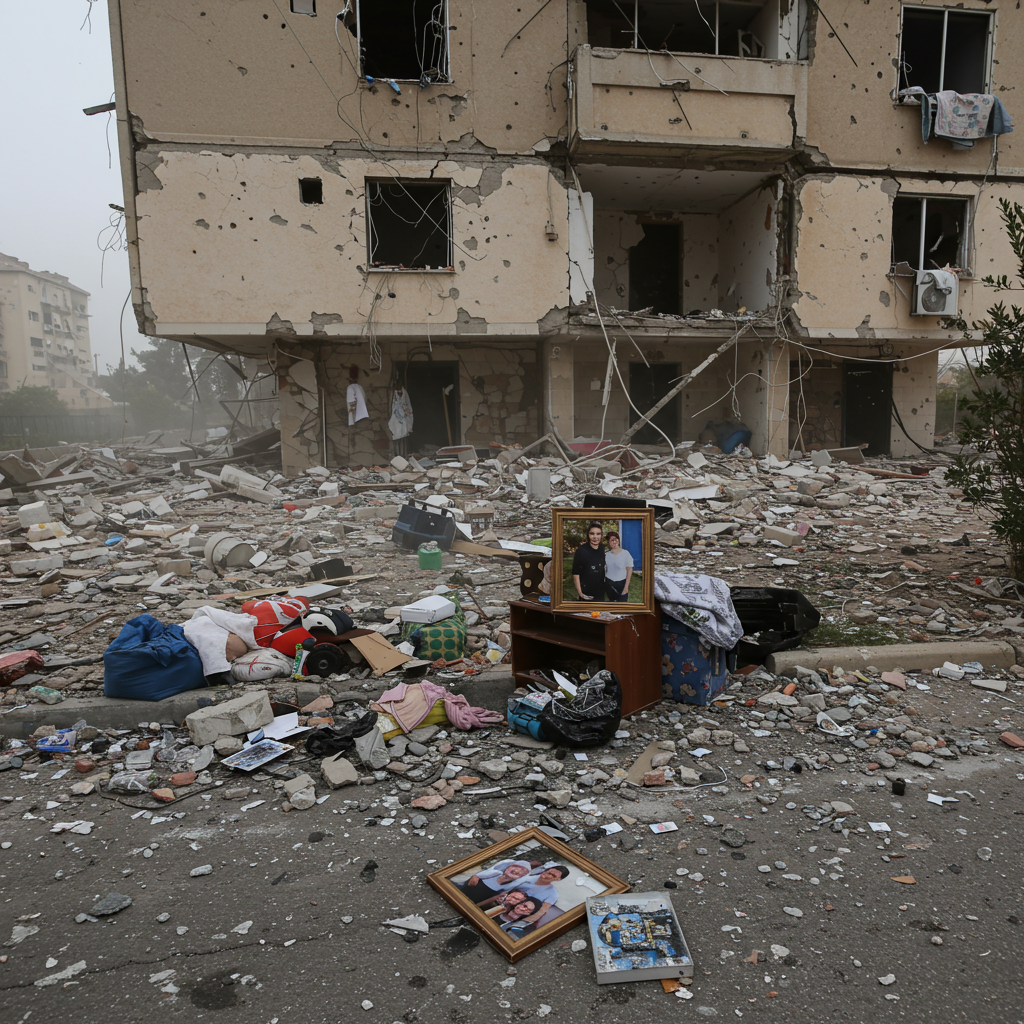Escaping the relentless onslaught of war in Ukraine, a family of five sought sanctuary in Israel, a land they hoped would offer safety and peace. Instead, the devastating reach of another conflict found them, with a tragic Iranian missile strike claiming all five lives in a suburb of Tel Aviv.
This heartrending event on June 15 in Bat Yam underscores the cruel intersection of global conflicts, illustrating how violence can relentlessly pursue those desperately trying to flee it.
For Mariia Pieshkurova and her family, Israel represented hope. It was the place where her 7-year-old daughter, Anastasiia, critically ill with advanced leukemia, could potentially receive vital, life-saving medical treatment unattainable amidst the chaos of war-torn Ukraine. For Anastasiia’s young cousins, Kostiantyn and Illia, Israel offered a perceived refuge from the nightly barrages of Russian drones and missiles that terrorized their homeland. Together, Mariia, the three children, and their grandmother settled into life in Bat Yam, believing they had finally outrun the war.
Tragedy Strikes in a Supposed Haven
The family’s fragile sense of security was shattered when an Iranian missile, part of escalating air assaults between Israel and Iran, struck their residential building. All five perished. The news sent shockwaves through Ukraine, amplifying grief and outrage among a population already enduring immense suffering.
Their deaths represent a profoundly human connection between the conflicts in Ukraine and the Middle East—wars primarily linked until now through geopolitical maneuverings and arms supplies, such as Iran’s provision of attack drones to Russia.
The irony is stark and devastating: the family was killed by war in the very country they trusted to protect them, a nation famed for its sophisticated air defense systems that Ukraine has long wished it possessed. “I really thought they’d be safe,” shared Artem Buryk, Anastasiia’s father and Mariia’s ex-partner. “I never thought they’d go to Israel to escape war — and find it there.”
A Broader Picture: Migrants Facing Renewed Trauma in Israel
The experience of this family, while uniquely tragic in its outcome, highlights a disturbing reality for the tens of thousands who have recently sought refuge in Israel. Since Russia’s invasion of Ukraine in February 2022, over 45,000 Ukrainians have fled to Israel. Many had just begun the difficult process of healing and rebuilding their lives when the conflict in Israel escalated significantly following the October 7, 2023 attacks.
Now, these refugees are finding themselves reliving the trauma of war. Individuals like Tatyana Prima, who survived the harrowing siege of Mariupol, Ukraine, only to face rocket fire in her new home in Ashkelon, southern Israel, describe a haunting sense of “deja vu.” The constant sounds of conflict trigger painful memories, making the path to psychological recovery even more challenging.
Similarly, many Russians who relocated to Israel after 2022, often to avoid political persecution or military mobilization back home, also grapple with the daily realities of conflict. An estimated 65,000 Russians have used Israel’s repatriation program since the war in Ukraine began. Despite the dangers of rocket attacks and regional instability, many express a conviction that Israel, with its security measures and civil society response, feels safer than the risks they perceive in Russia, particularly regarding their political views.
While some Ukrainians have left Israel or moved internally within the country to escape the most active conflict zones, others remain, steadfast in their refusal to be displaced by war a second time. However, the psychological toll is undeniable. Experts warn that being exposed to new conflict before processing past trauma can significantly worsen mental health conditions.
The tragedy of the family in Bat Yam serves as a poignant reminder that in an increasingly interconnected world, the devastating consequences of conflict can ripple across continents, reaching even those who believe they have finally found a safe harbor.


